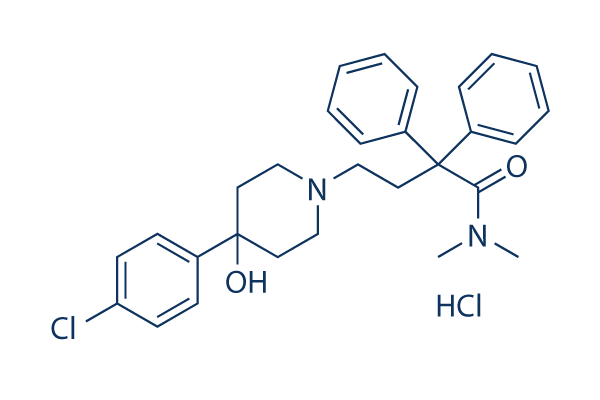Loperamide HCl Powder is a widely used medication that belongs to the class of drugs known as antidiarrheal agents. It works by slowing down the movement of fluids through the intestines, which helps to reduce the frequency and volume of bowel movements. This powerful medication is primarily used to treat various types of diarrhea and related gastrointestinal issues. In this blog post, we will explore the common uses of Loperamide HCl Powder and answer some frequently asked questions about its application in different scenarios.
How effective is Loperamide HCl Powder in treating acute diarrhea?
Loperamide HCl Powder has proven to be highly effective in treating acute diarrhea, which is characterized by a sudden onset of loose, watery stools that typically last for a short period. The medication works by binding to opioid receptors in the intestinal walls, reducing the speed at which food and fluids move through the digestive system. This action allows more time for water and electrolytes to be absorbed back into the body, resulting in firmer stools and less frequent bowel movements.

Studies have shown that Loperamide HCl Powder can provide relief from acute diarrhea symptoms within hours of the first dose. In many cases, patients experience a significant reduction in the frequency of bowel movements and an improvement in stool consistency after just one or two doses. The effectiveness of Loperamide HCl Powder in treating acute diarrhea has made it a popular over-the-counter medication for travelers, as it can quickly alleviate symptoms associated with traveler's diarrhea.
It's important to note that while Loperamide HCl Powder is effective for most cases of acute diarrhea, it should not be used in situations where the diarrhea is accompanied by high fever or bloody stools, as these symptoms may indicate a more serious underlying condition that requires medical attention. Additionally, Loperamide HCl Powder should not be used for prolonged periods without consulting a healthcare professional, as chronic use may mask underlying gastrointestinal issues or lead to dependency.
Can Loperamide HCl Powder be used to manage chronic diarrhea in certain medical conditions?
Loperamide HCl Powder can indeed be used to manage chronic diarrhea associated with certain medical conditions, under the guidance of a healthcare professional. Chronic diarrhea is defined as loose, watery stools that persist for more than four weeks and can be caused by various underlying health issues. In these cases, Loperamide HCl Powder may be prescribed as part of a comprehensive treatment plan to help improve the patient's quality of life and manage symptoms.
One common application of Loperamide HCl Powder in managing chronic diarrhea is for patients with inflammatory bowel diseases (IBD) such as Crohn's disease or ulcerative colitis. These conditions can cause persistent diarrhea that significantly impacts a person's daily life. While Loperamide HCl Powder does not treat the underlying inflammation, it can help reduce the frequency and urgency of bowel movements, providing relief and improving the patient's ability to engage in normal activities.
Another condition where Loperamide HCl Powder may be beneficial is chronic diarrhea associated with irritable bowel syndrome (IBS). IBS is a functional gastrointestinal disorder that can cause alternating bouts of diarrhea and constipation. For patients with IBS-D (diarrhea-predominant IBS), Loperamide HCl Powder can be an effective tool in managing symptoms and reducing the frequency of diarrheal episodes.
Loperamide HCl Powder has also shown promise in managing diarrhea related to chemotherapy and radiation therapy in cancer patients. These treatments can often cause severe gastrointestinal side effects, including persistent diarrhea. By using Loperamide HCl Powder, patients may experience improved symptom control and better quality of life during their cancer treatment. It's crucial to emphasize that the use of Loperamide HCl Powder for chronic diarrhea should always be supervised by a healthcare professional. They can determine the appropriate dosage and duration of treatment based on the individual patient's needs and underlying condition. Regular follow-ups are essential to monitor the medication's effectiveness and any potential side effects or complications.
What are the guidelines for using Loperamide HCl Powder in pediatric patients?
The use of Loperamide HCl Powder in pediatric patients requires careful consideration and should always be done under the guidance of a healthcare professional. While the medication can be effective in treating diarrhea in children, there are specific guidelines and precautions that must be followed to ensure safe and appropriate use.
First and foremost, it's important to note that Loperamide HCl Powder is generally not recommended for use in children under 12 years of age without a doctor's prescription. For over-the-counter use, most health authorities advise that the medication should only be used by individuals 12 years and older. This restriction is in place due to the potential risks associated with the use of antidiarrheal medications in young children, including the possibility of severe side effects or complications.

For children under 12 years of age who are experiencing acute diarrhea, the primary focus should be on preventing dehydration through oral rehydration therapy. This involves replacing lost fluids and electrolytes using specially formulated oral rehydration solutions. In many cases, acute diarrhea in children will resolve on its own within a few days with proper hydration and supportive care.
In certain situations, a healthcare provider may prescribe Loperamide HCl Powder for use in children under 12. When this occurs, it's crucial to follow the prescribed dosage and administration instructions carefully. The dosage for children is typically based on their weight and may be significantly lower than the adult dosage. Parents or caregivers should never attempt to calculate or adjust the dosage on their own, as this could lead to potentially dangerous outcomes.
When using Loperamide HCl Powder in pediatric patients, it's essential to monitor the child closely for any signs of adverse reactions or worsening symptoms. If the diarrhea persists for more than 24 hours after starting the medication, or if the child develops a high fever, bloody stools, or signs of dehydration, medical attention should be sought immediately.
It's also worth noting that Loperamide HCl Powder should not be used as a first-line treatment for diarrhea in children with certain conditions, such as acute dysentery or inflammatory bowel disease. In these cases, addressing the underlying cause of the diarrhea is crucial, and the use of antidiarrheal medications may potentially mask more serious symptoms or delay proper treatment.
Healthcare providers may consider prescribing Loperamide HCl Powder for pediatric patients with chronic diarrhea associated with specific medical conditions, such as short bowel syndrome or congenital chloride diarrhea. In these cases, the medication may be used as part of a comprehensive treatment plan to manage symptoms and improve quality of life. However, such use should be closely monitored and regularly reassessed by the healthcare team.
In conclusion, while Loperamide HCl Powder can be an effective medication for treating diarrhea, its use in pediatric patients requires careful consideration and should always be done under medical supervision. Parents and caregivers should prioritize hydration and seek medical advice before administering any antidiarrheal medications to children, especially those under 12 years of age. By following these guidelines and working closely with healthcare professionals, the safe and effective use of Loperamide HCl Powder can be ensured for pediatric patients when appropriate.
If you are also interested in this product and want to know more product details, or want to know about other related products, please feel free to contact sasha_slsbio@aliyun.com.
References
1. U.S. Food and Drug Administration. (2022). Loperamide Information. FDA.gov.
2. World Health Organization. (2021). Diarrhoeal disease. WHO.int.
3. American Gastroenterological Association. (2020). Chronic Diarrhea: A Guide for Patients. Gastro.org.
4. National Institute of Diabetes and Digestive and Kidney Diseases. (2021). Treatment for Diarrhea. NIDDK.NIH.gov.
5. Mayo Clinic. (2022). Loperamide (Oral Route). MayoClinic.org.
6. Centers for Disease Control and Prevention. (2021). Travelers' Diarrhea. CDC.gov.

